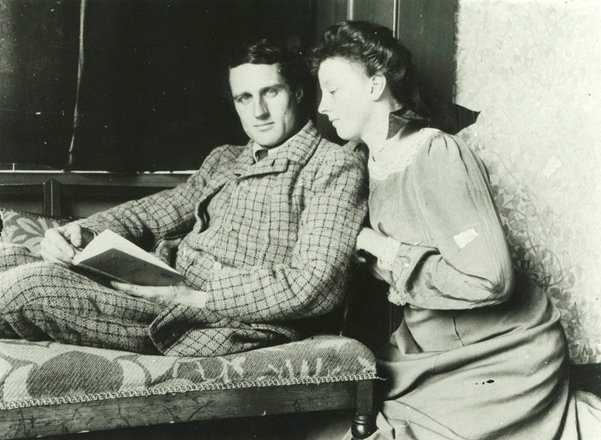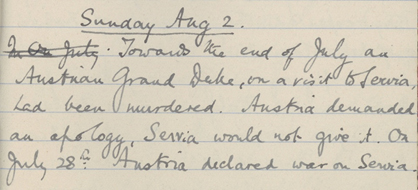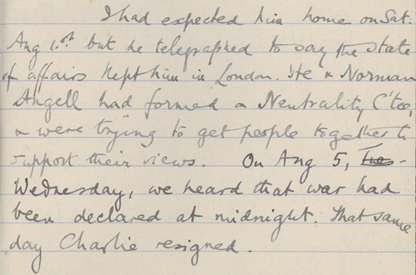
The 28th June marked the centenary of the assassination of Archduke Franz Ferdinand of Austria. This became known as the ‘shot heard round the world’ because of the diplomatic crisis it caused between Britain, Germany, and Russia, leading to the outbreak of World War I.
Such hostilities were not universally welcome, especially amongst the more radical elements of Prime Minister Herbert Asquith’s Liberal party. Sir Charles Philips Trevelyan (1870 – 1958), was one such dissenter, who felt Britain’s declaration of war was wholly unjustified.
In her diary, contained within our Trevelyan Papers, his wife Mary “Molly” Katharine Trevelyan (1881 – 1966) explains:
EXTRACT 1

Transcription: Towards the end of July, an Austrian Grand Duke, on a visit to Servia, had been murdered. Austria demanded an apology, Servia would not give it. On July 28th Austria declared war on Servia. Russia at once joined in as Servia’s ally, and Germany as Austria’s.
Molly goes on to detail Secretary of State for Foreign Affairs Sir Edward Grey’s now much derided lack of clear communication towards Germany. She states on two occasions when asked whether Britain would act if Belgium was invaded or France was engaged, he merely replied cryptically “we must keep our hands free.” Molly also touches on the view held by many Liberal radicals that Grey “had in secret committed himself so deeply to France, in what was practically an alliance, that in honour he could do no less than declare war on Germany.”
Indeed, her husband was chief amongst this opposition. She writes:
EXTRACT 2

Transcription: I had expected him home on Sat. Aug. 1st but he telegraphed to say the state of affairs kept him in London. He and Norman Angell had formed a Neutrality C’tee and were trying to get people together to support their views. On Aug 5, Wednesday, we heard that war had been declared at midnight. That same day Charlie resigned.
Sir Charles’ crisis of conscience led to widespread hostility from his contemporaries, including the press, his constituents, and members of his own family. He lost his place in parliament in the 1918 election and spent 4 years in the political wilderness. He was vindicated only amongst likeminded radicals and through the support and comfort of his wife Molly and the affairs of their estate at Wallington.
